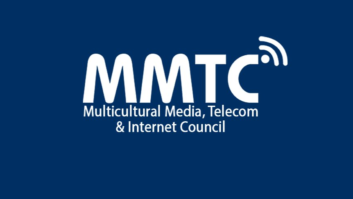The Register of Copyrights Selection and Accountability Act of 2017 was introduced late Thursday (March 23).

The bipartisan bill, co-sponsored by House Judiciary Committee Chairman Bob Goodlatte (R-Va.) and ranking member John Conyers (D-Mich.) would make the position a presidential appointment, requiring confirmation by the Senate, and with a term limit of 10 years. Currently it is an appointment of, and reports to, the Librarian of Congress and has no term limit.
The Register of Copyrights oversees the Copyright Office, whose opinion that online video streamers aren’t MVPDs when it comes to compulsory license eligibility was just deferred to by the Ninth Circuit in ruling against streamer FilmOn X.
The duties of the registrar include “legal interpretation of the copyright law…promulgating copyright regulations; advising Congress and other government officials on domestic and international copyright policy and other intellectual property issues.”
There is currently an acting register, Karyn Temple Claggett, but no permanent pick, so this would apply to the next full-time official. Claggett replaced Maria Pallante, who pushed for making illegal streaming of copyrighted works a felony and more shared ISP concerns with the impact of the FCC’s set-top box proposal on copyrights and contracts.
Fair use fans, including Public Knowledge, had taken issue with Pallante and what they said was the Copyright Office’s too pro-industry bent.
Goodlatte and Conyers telegraphed some of those reforms late last year.
Broadcasters’ principal trade group was applauding the bill.
“NAB thanks Chairmen Goodlatte and Grassley, Ranking Members Conyers, [Sens. Diane] Feinstein and [Patrick] Leahy, and their cosponsors on the bipartisan introduction of legislation to make the Register of Copyrights subject to the Presidential nomination and Senate confirmation process,” said National Association of Broadcasters President Gordon Smith. “As representatives of both significant owners and users of copyrighted material, NAB supports passage of this bill and will continue to work with lawmakers on broader efforts to modernize the copyright office.”
The Library Copyright Alliance, representing more than 120,000 libraries serving 200 million patrons annually, does not support the bill, or it suggested, understands its impetus.
The “Register of Copyrights Selection and Accountability Act” is mystifying,” it said in a statement. “Why Congress would voluntarily cede its own confirmed Librarian’s authority to select and oversee a key Congressional advisor on copyright matters to the Executive Branch is hard to imagine. It’s also difficult to understand how the public or
Congress itself would benefit from politicization of the Register of Copyrights’ position by making it subject to presidential appointment and Senate confirmation, as this legislation proposes. Such politicization of the position necessarily would result in a Register more actively engaged in policy development than in competent management and modernization.”
The U.S. Chamber of Commerce saw it quite differently.
“Innovative and creative industries are encouraged by Congress’ commitment to the ongoing process to modernize the U.S. Copyright Office. The office plays a critical role in fostering American creativity and innovation: copyright-intensive industries support 5.6 million jobs in the U.S. alone. It is extremely important that Congress continue its work on office modernization going forward in order to provide the office with the right leadership and IT capabilities to better serve the American people and companies. We applaud congressional leaders on the introduction of this bipartisan bill as an important first step in this process, and we will continue to work with them as they seek to strengthen and improve our nation’s Copyright Office.”
Randolph May, president of the Free State Foundation, a think tank that deals with copyright issues, was similarly pleased.
“I welcome the introduction in both the House and the Senate, on a bipartisan basis, of bills that, if adopted, would constitute a major step towards reforming the Copyright Office by requiring that the Register of Copyrights be nominated by the President and confirmed by the Senate,” he said. “This important structural reform will provide the Office with the autonomy that is needed to overcoming administrative and technological obstacles that now keep the Office from carrying out its key registration and recordation functions as efficiently and effectively as it should.”
Ditto the Recording Academy.
“Copyright is a bedrock of our economy, and thus the selection of the Register of Copyrights is critical to creators and consumers,” the group said. “We applaud Chairman Goodlatte and Ranking Member Conyers for introducing legislation that would elevate the role of Register to a Presidential appointee. We support passage of the Register of Copyrights Selection and Accountability Act and look forward to working with the Judiciary Committee on future proposals regarding music licensing and other copyright issues.”












